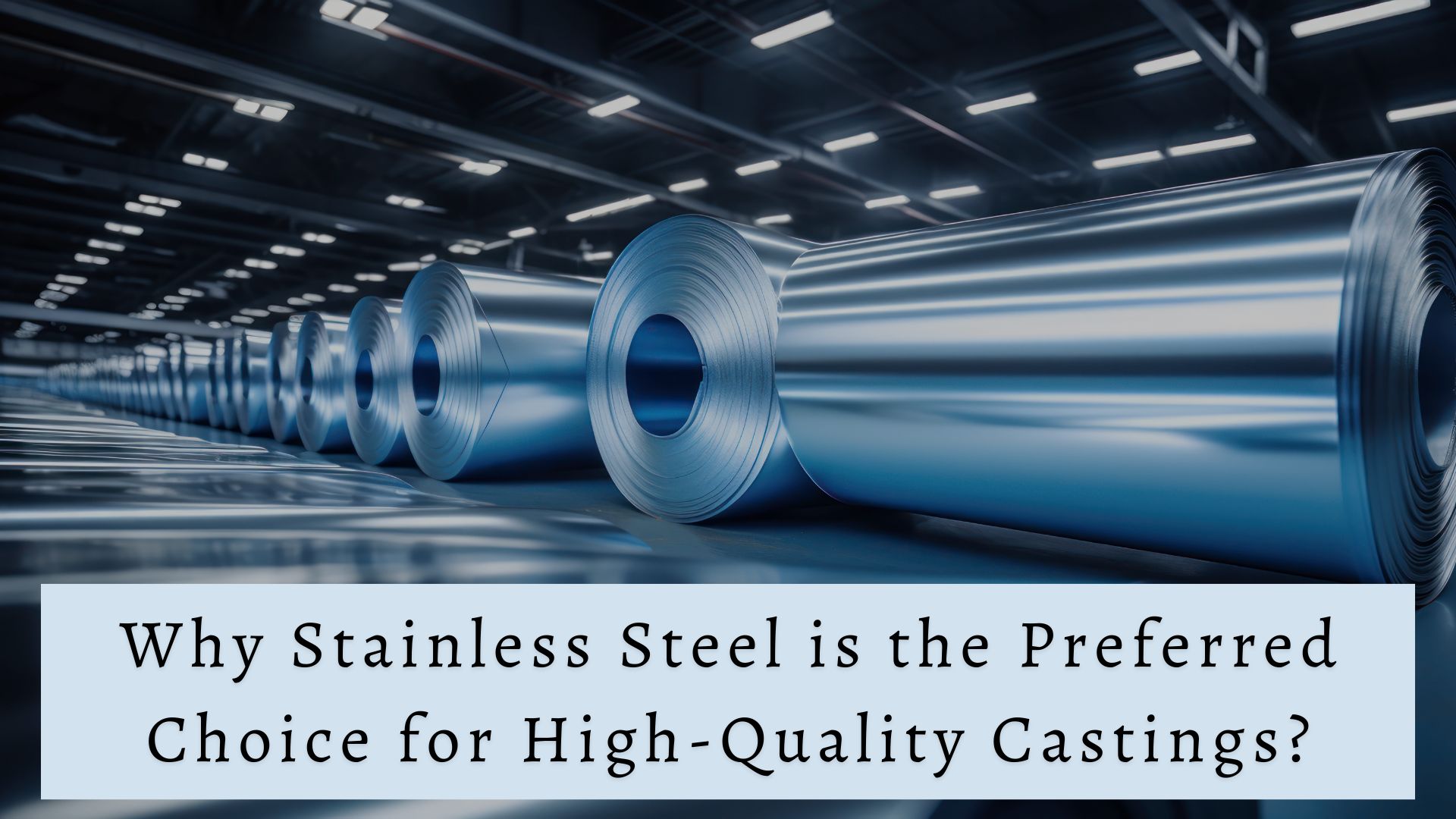

Stainless steel is an alloy mainly made of iron, which is a part of daily life no matter where you are and what you do. It is an indispensable metal used in everyday life, manufacturing industries, tools, as a raw material, and so many other ways. However, have you thought about why stainless steel is used so extensively for high-quality castings and why it has no rival among metals?
This blog is an answer to that curious question. We will delve into the specifics of stainless steel, its various properties, and how those properties make it an unsubstituted metal choice.
Read on!
Stainless steel is an alloy of iron containing 10 percent Chromium and other metals such as nickel, manganese, magnesium, titanium, and a very low percentage of carbon. These metals are mixed together in fixed proportions to achieve the desired grade of this shiny metal. It is a non-corrosive, durable, and strong metal used for multiple applications, including casting.
Check out the distinct advantages of stainless steel casting:
Corrosion Resistance: The best property of stainless steel is that it is not prone to rust and corrosion. In fact, some stainless steel grades are even used for underwater marine operations as they are completely resistant to corrosion. It makes the metal fit for the product casting, which is exposed to extreme temperatures and environmental conditions.
Aesthetic Appeal: Many metals require thorough finishing after the casting, and stainless steel does it, too. However, the metal’s lustrous finish enhances the casting’s aesthetic appeal. When aesthetics are important, stainless steel is a great option.
Hygiene and Cleanliness: Stainless steel cast products are also used in food machinery and other kitchen products. Do you know why? That’s because stainless is easy to clean and maintain. Where hygiene is crucial, you can trust stainless steel.
Strength and Durability: Stainless steel castings are known for their high tensile strength and durability, ensuring long-lasting performance even under heavy loads and harsh conditions.
Various stainless steel grades are used for casting, each with distinct properties and applications, as discussed below.
Austenitic Stainless Steel: Some of the popular grades of this type of steel are Grade 304 and 316, known for their exceptional corrosion resistance. They are also non-magnetic and super strong.
Ferritic Stainless Steel: Some popular grades of this type of steel are Grade 430 and 409. It is magnetic and strong and is used extensively in the automotive industry.
Martensitic Stainless Steel: Martensitic stainless steel is distinct in its formation process and its specific martensite crystal structure. While it is hard and strong, it is not the best choice for corrosion resistance in stainless steel casting. Common grades of this type include 410 and 420.
Duplex Stainless Steel: It is a mixture of austenitic and ferritic stainless steel and combines both their properties, offering the required strength and exceptional corrosion resistance. Its common grades are 2205 and 2507 which are used extensively for marine applications.
Following are the various applications of stainless steel casting in different industries:
Automotive Industry: Used to create exhaust systems, engine components, and other structural parts.
Aerospace Industry: Used to create landing gear, engine parts, etc.
Architectural Applications: Facades, railing, sculptures, window panes, etc.
Oil and Gas Industry: Stainless steel pipes, valves, pumps, etc.
Medical Industry: Used to create surgical equipment, dental tools, medical storage equipment, etc.
Perforated stainless steel has been stamped, punched, and cut to achieve aesthetic or functional goals. It is used widely in many industries for its pattern and purpose.
Here are the applications of perforated stainless steel in castings:
Filtration: Perforated stainless steel is used in filters and screens, allowing for precise filtration of liquids and gasses.
Architectural Designs: Perforated stainless steel panels control sound and reduce noise levels in architectural and industrial applications.
Decorative Elements: Perforated patterns are used extensively in decorative items because of their aesthetic appeal.
Custom stainless steel castings serve multiple purposes. First, they meet the specific requirements of your project. Also, if you require intricate and complex shapes, investment casting and casting can help achieve that, offering you unique components.
However, it is a tricky business, and you must find a reliable metal supplier to help you make custom casts.
For any custom metal casting needs in Albuquerque, contact New Mexico Metals LLC.
Stainless steel casting is not an easy process compared to other metal-related techniques. It requires excellent skill sets and machines to achieve perfection. When you need custom stainless steel casting for small needs, it is advised to approach a supplier who can best guide you.
At New Mexico Metals LLC, we boast a wide range of line items. We also offer custom services, so if you have a need, we can custom-make it for you.
Give us a call for more information!